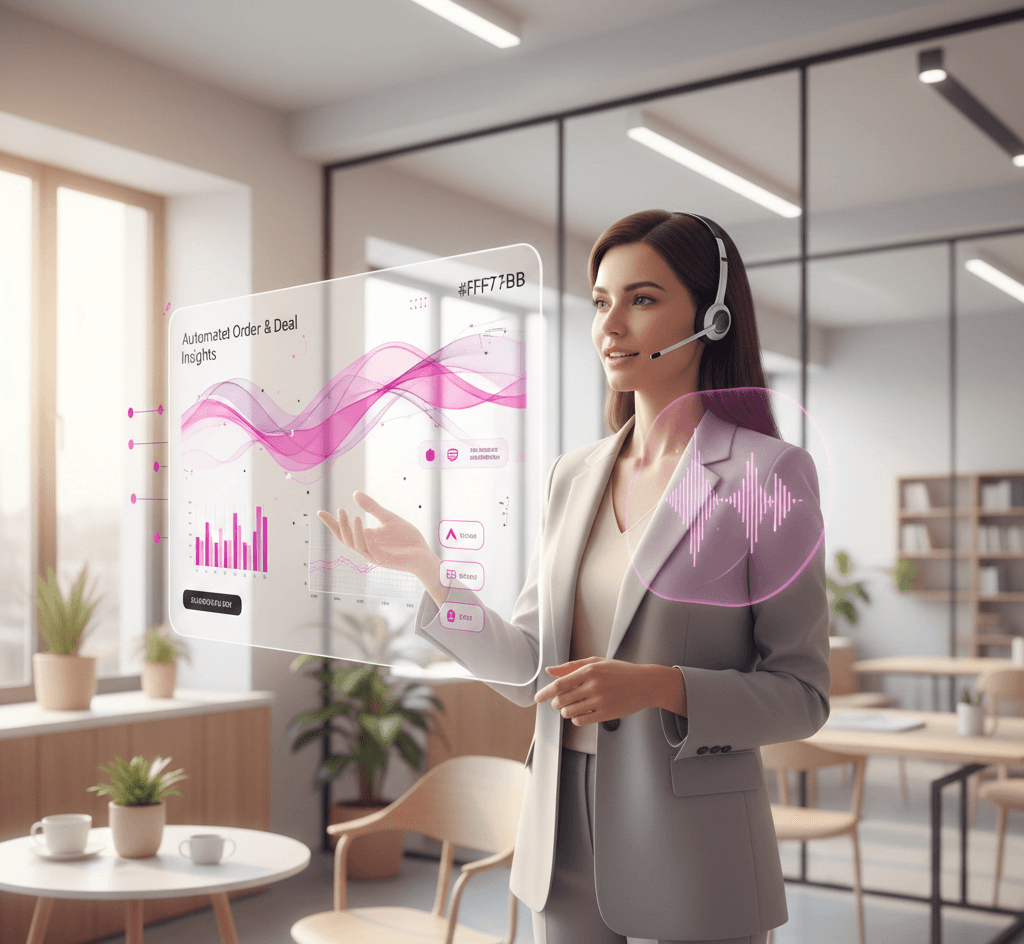“Transform your sales with AI sales follow-up. Discover how SalesCloser AI boosts efficiency, accuracy, and conversions.”
In today’s competitive sales environment, follow-up can determine whether a lead converts or slips away. Being prompt, personalized, and data-driven in your approach isn’t just nice to have—it’s essential. Unfortunately, traditional methods often lack the precision and consistency needed to win in this space. That’s where artificial intelligence steps in.
What is AI Sales Follow-Up?
AI sales follow-up uses artificial intelligence to automate and enhance the follow-up process. These tools analyze data, predict outcomes, and suggest the best times and methods to engage with leads. They can also send personalized emails, schedule calls, and provide real-time insights on potential deals.
The Importance of Timely Follow-Up
Timing is everything in sales. Studies show that contacting a lead within the first five minutes increases the chance of conversion by 100 times compared to waiting 30 minutes. AI sales follow-up ensures you never miss that critical window. It can automatically schedule follow-ups based on the lead’s behavior and interaction history.
How SalesCloser AI Transforms Follow-Up
SalesCloser AI redefines sales follow-up by introducing intelligent AI agents that actively engage with leads, replicate top-performing sales behaviors, and optimize the entire follow-up process. Rather than simply automating tasks, these AI agents act as virtual team members, analyzing, interacting, and adapting in real-time to drive better outcomes.
- AI-Powered Engagement: SalesCloser AI agents go beyond basic automation. They communicate with leads via email, SMS, or chat in a personalized and human-like manner, ensuring every touchpoint feels natural and timely.
- Behavioral Intelligence: These agents learn from lead interactions, preferences, and historical data to determine the best follow-up approach—delivering tailored messaging that resonates and builds trust.
- Performance-Driven Decisions: Leveraging real-time analytics, SalesCloser AI agents identify the highest-converting strategies and optimize their outreach accordingly, increasing conversion potential with every interaction.
- CRM Integration: SalesCloser AI works seamlessly with your existing CRM, syncing data and insights so your team can fully view lead status and follow-up performance.
With SalesCloser AI, you’re not just automating follow-up—you’re scaling your sales team with virtual agents designed to enhance performance, close more deals, and deliver a smarter, more consistent sales experience.
Benefits of Using AI in Sales Follow-Up
- Increased Efficiency: Automating repetitive tasks frees up time for your sales team to focus on closing deals.
- Improved Accuracy: AI tools analyze large volumes of data to provide accurate insights, reducing the risk of human error.
- Enhanced Customer Experience: Personalized and timely follow-ups enhance the customer experience, leading to higher satisfaction and loyalty.
- Higher Conversion Rates: Timely and relevant follow-ups increase the chances of converting leads into customers.
Implementing AI in Your Sales Process
- Step 1: Identify Pain Points
Begin by analyzing your current process. Are your follow-ups consistent? Are leads slipping away due to delays or lack of personalization?
- Step 2: Choose the Right Tool
There are many AI-driven follow-up tools on the market. Select one based on your sales volume, CRM compatibility, and desired features.
- Step 3: Integrate Seamlessly
Ensure your chosen tool connects well with your CRM and communication platforms for real-time data sync and smooth automation.
- Step 4: Train Your Team
Even the best tools can be useless if your team doesn’t know how to use them. Offer practical training to ensure everyone understands the benefits and how to leverage the tool effectively.
- Step 5: Monitor and Adjust
Track your KPIs—response rates, engagement, and conversions. Use these insights to fine-tune your follow-up strategy and settings.
Overcoming Common Challenges
Adopting AI sales follow-up comes with its challenges. Here are some common ones and how to overcome them:
- Resistance to Change: Some team members may resist new technology. Address their concerns through training and demonstrating the tool’s benefits.
- Data Quality: AI tools rely on high-quality data. Ensure your CRM data is clean and up-to-date.
- Integration Issues: Technical issues can arise during integration. Work closely with your IT team or the AI tool’s support team to resolve them quickly.
- Cost Concerns: The initial investment in AI tools can be high. However, the long-term benefits often outweigh the costs.
The Future of AI in Sales
The future of sales lies in harnessing the power of AI. We can expect even more advanced features and capabilities as AI technology evolves. Predictive analytics, real-time engagement, and enhanced personalization will become standard, driving sales efficiency and effectiveness to new heights.
Conclusion
AI sales follow-up isn’t just a modern upgrade—it’s a transformative shift in how sales teams operate. From increasing efficiency and accuracy to delivering personalized, timely engagement, AI tools are reshaping the sales landscape. But while many platforms offer automation, SalesCloser AI stands in a league of its own.
What sets SalesCloser AI apart is its use of intelligent AI agents—not just automation scripts but adaptive virtual sales reps that learn, respond, and optimize follow-up strategies in real-time. These AI agents go beyond scheduling emails or setting reminders; they mimic top-performing sales behaviors, engage leads conversationally, and precisely guide prospects through the funnel.
If you want to elevate your sales performance, close more deals, and ensure no lead is left behind, SalesCloser AI offers the most innovative and advanced solution. It’s not just automation—it’s intelligent sales execution powered by AI agents built to deliver results.
FAQs about AI Sales Follow-Up
Q1: What is AI sales follow-up?
A: AI sales follow-up uses artificial intelligence to automate and optimize reconnecting with leads. It involves sending emails, scheduling calls, and delivering personalized communications based on data insights.
Q2: What are the benefits of using AI in sales follow-up?
A: Key benefits include time savings, improved accuracy, better customer experience, and higher conversion rates due to personalized and timely communication.
Q3: Can AI sales follow-up tools integrate with CRMs?
A: Most leading tools offer seamless integration with popular CRMs, ensuring all data and communication are in sync.
Q4: What should I look for in an AI follow-up tool?
A: Look for features like email automation, personalization, predictive analytics, CRM integration, and ease of use.
Q5: How do I get started with AI follow-up?
A: Start by identifying inefficiencies in your current process. Choose a tool that meets your needs, ensure it integrates with your CRM, and train your team to use it effectively.
Q6: What challenges might arise when using AI in sales?
A: Challenges can include resistance to new technology, ensuring clean and complete data, technical integration issues, and concerns about cost.
Q7: What’s next for AI in sales follow-up?
A: Expect advancements in predictive engagement, real-time communication, hyper-personalization, and AI agents that can autonomously manage parts of the sales conversation.






